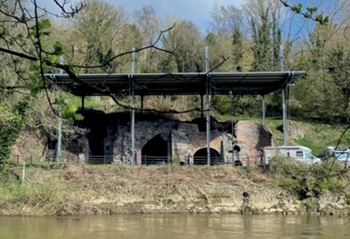Request for information RFI
A Request for Information (RFI) (occasionally referred to as a Technical Query) is a formal question asked by one party to a contract on a construction project to the other party. Typically this will be a request from the contractor to the client’s consultant team, but it may be between any of the parties, for example from a sub-contractor to a contractor.
RFIs can be roughly classified into several different categories. These classifications can be valuable to the project team if broad categories are used in documents. This way they will enhance communication, focus the process on the intended and desired result, and steer the project team.
These categories are:
- Design clarifications (conflicts, incomplete plans, specifications).
- Requests for a design change (often due to errors in construction, sequencing problems).
- Requests for substitutions (value engineering, material availability, ease of use).
- Constructability issues
- Differing site conditions
RFIs are generally required to clarify information in the contract documentation or to provide information that was not complete at the time the contract was agreed.
RFIs should set out:
- The details of project.
- The details of the party requesting the information.
- The date the query was raised.
- The nature of the information being requested.
- The date by which a response is required.
- Any supporting explanatory documents provided.
It may be necessary for the party receiving the RFI to seek further information from parties with whom they themselves have a contractual relationship in order provide a response. It is good practice to include this information from other parties with the response to the original RFI. This can create a chain of information, where for example a subcontractor requests information from the main contractor, who in turn requests information from the client’s consultant team, and so on. It may then be appropriate for responses and any explanatory documents attached to them to be disseminated amongst the wider project team.
This creates a matrix of RFIs that need to be carefully tracked, responded to and distributed appropriately. This process be managed using an information request schedule, or can be managed electronically.
It is important to record the dates that RFIs are dispatched, the dates by which responses are required and the dates that responses are received to provide evidence in the event that a dispute arises.
Contractually, the requirement to respond to an RFI is created by the obligation to provide further information as is necessary to enable the other party to complete the contract on time. Requests should, however, give sufficient notice for the respondent to be able to resource and prepare a reply by the date that the information is required. The parties are then entitled to rely on the information provided as correct.
Failure to provide necessary information may qualify as a relevant event for which the contractor may be entitled to an extension of time and to claim loss and expense incurred as a result of any delay. Similarly, a response which constitutes a variation in the nature of the works may qualify as a relevant event for which the contractor may be entitled to an extension of time and to claim loss and expense.
A contractor’s master programme (generally prepared immediately after the execution of the contract and issued to the contract administrator for comment) may constitute a request for information. Similarly, a client information release schedule may constitute a commitment to provide information by certain dates, whether or not these dates are necessary to achieve the completion date.
In 2018, researchers in Australia analysed data collected from 168 projects and calculated that the average cost of processing RFIs on a project is US$656,000 (AUS$910,000). Ref https://www.tandfonline.com/doi/abs/10.1080/20450249.2018.1546976?journalCode=tcri20
Building Information Modelling (BIM) should give the entire project team access to better, more comprehensive and more co-ordinated information, reducing significantly the need for RFIs.
[edit] Related articles on Designing Buildings
- Architects instruction.
- Change control procedure.
- Contractors master programme.
- Extension of time.
- Information release schedule
- Information request schedule.
- Loss and expense.
- Relevant event.
- RFx.
- Site queries.
- Variation.
[edit] External references
- How to Improve Your Request for Information Process
- Necessary evils: Controlling Requests for Information (RFIs) to reduce cost and improve margins
- The Anatomy of a Request for Information
Featured articles and news
Art of Building CIOB photographic competition public vote
The last week to vote for a winner until 10 January 2025.
The future of the Grenfell Tower site
Principles, promises, recommendations and a decision expected in February 2025.
20 years of the Chartered Environmentalist
If not now, when?
Journeys in Industrious England
Thomas Baskerville’s expeditions in the 1600s.
Top 25 Building Safety Wiki articles of 2024
Take a look what most people have been reading about.
Life and death at Highgate Cemetery
Balancing burials and tourism.
The 25 most read articles on DB for 2024
Design portion to procurement route and all between.
The act of preservation may sometimes be futile.
Twas the site before Christmas...
A rhyme for the industry and a thankyou to our supporters.
Plumbing and heating systems in schools
New apprentice pay rates coming into effect in the new year
Addressing the impact of recent national minimum wage changes.
EBSSA support for the new industry competence structure
The Engineering and Building Services Skills Authority, in working group 2.
Notes from BSRIA Sustainable Futures briefing
From carbon down to the all important customer: Redefining Retrofit for Net Zero Living.
Principal Designer: A New Opportunity for Architects
ACA launches a Principal Designer Register for architects.





















Comments
If there is an error in AFC document drawing, could it be solved by RFIs/TQ or it should be sent to engineering department for making revision? (for example, a level cross between road and an existing bridge which designers haven't considered)